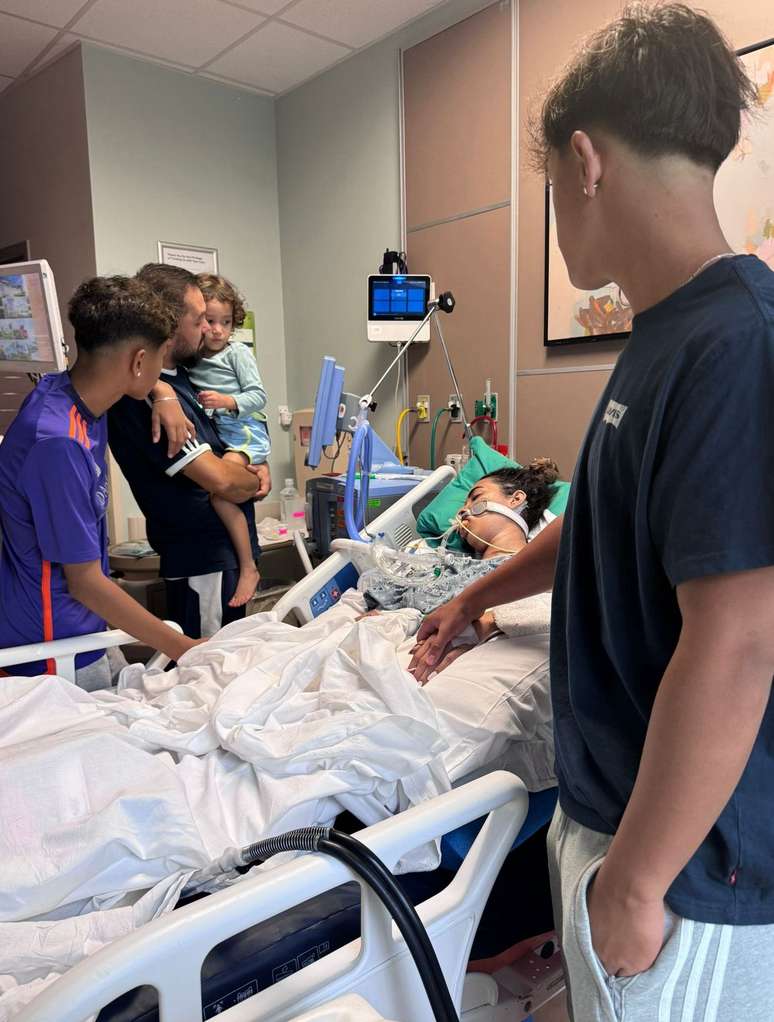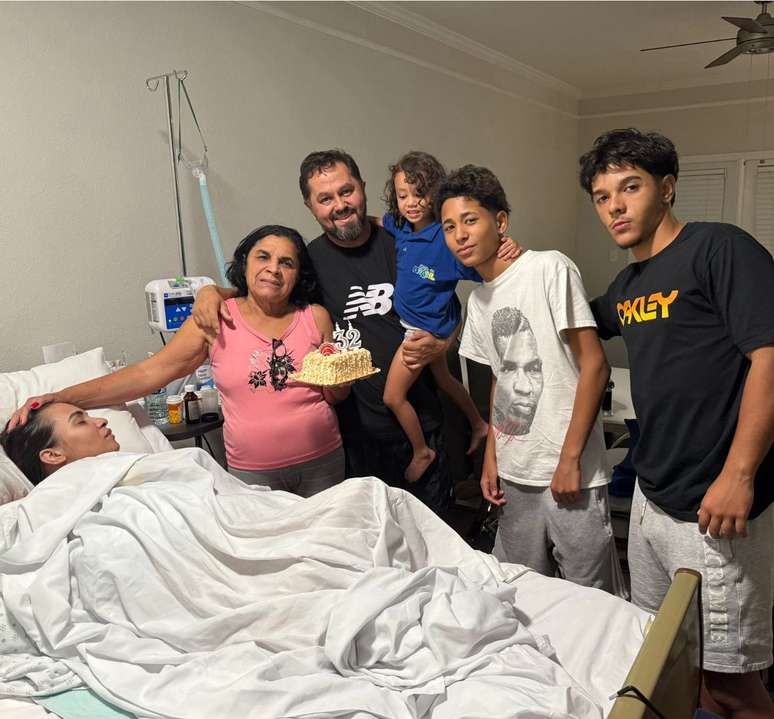After Itamaraty denied airlift support, Ubiratan decided to adapt a vehicle to take Fabíola
Summary
Without resources for air transportation, Ubiratan Rodrigues decided to adapt a camper to take his wife, in a vegetative state, from the United States to Brazil on a trip of about 60 days, trying to start life again with his family.
In September 2024, Ubiratan Rodrigues’ life changed completely. A truck driver by profession and married to Fabíola da Costa for over 15 years, he abandoned the roads of the United States to dedicate himself to the routine care of his wife, who fell into a vegetative state after suffering a sudden illness at work. Now, unable to afford to stay in the country, he plans to travel by camper from Florida to Juiz de Fora (MG) to try to start a life with his family.
Receive the main news directly on WhatsApp! Subscribe to the Terra channel
Without means for a medical flight, the family plans to return by camper from the United States to Brazil. “A year ago, my wife Fabiola suddenly fell ill and had three cardiac arrests, which caused a lack of oxygen to her brain and left her in a vegetative state. For seven months she was hospitalized in serious condition. Today I take care of her at home, along with our three children,” Ubiratan said.
Al Earthexplained that the couple arrived in the United States in 2019. Fabíola was working as a manicurist when she got sick, and Ubiratan has since quit his job to dedicate himself full time to caring for his wife.
He says he also tried to raise money for air transport with the ICU, but the campaign did not reach the necessary amount. “After the doctor cleared us to fly, we started a campaign to get an airborne intensive care unit. It was unsuccessful. We managed to get about $20,000 at the time,” he says.

The air trip, according to him, would cost about 120 thousand dollars (about R$ 700 thousand). “Our biggest difficulty today is to return to Brazil, because we cannot stay here, because I cannot work. So, we need this help to return to Brazil, safely,” he explained in a video in which he asked for donations via his profile (@biraefbiola).
The truck driver also sought help from Itamaraty, but was unsuccessful in his attempt. “The Ministry of Foreign Affairs does not have a budget to cover the costs of transporting patients to Brazil in mobile intensive care units,” the agency said in a statement obtained by the report. Itamaraty, however, offered support in issuing travel documents.
Given the lack of alternatives, the truck driver decided to adapt a camper to transport his wife. “Here we don’t have any help, so I had to act. I chose to return to Brazil in a camper. The doctor allowed her to travel. According to him it’s like transporting a patient by land. I just have to pay attention to the internal temperature of the camper, which can never drop compared to the average ambient temperature,” she explains.
To ensure safety and stability during the journey, he devised a detailed plan. “So I would have to come up with a plan A, a plan B and a plan C so as not to lose electricity. So plan A would use the camper’s batteries. Plan B, a generator. And plan C, solar power. And the adaptation would be to remove a table and secure the bed to the floor to make it stable.”
The total cost of the vehicle with the adaptation can reach 40 thousand dollars, approximately R$ 218 thousand.
“Any help makes a difference, it helps us bring Fabiola home, be close to her family and continue the care she needs,” he says.
According to the U.S. Customs and Border Protection Office of Public Affairs, in a note to the report, international RV travel is permitted, as long as the vehicle and travelers meet documentation requirements, such as passports, visas, insurance and vehicle registration.
The shortest route between Florida and Juiz de Fora would last about 25 days, crossing American states such as Texas, New Mexico, Arizona and California, regions with an arid climate and large desert expanses. Therefore, Ubiratan opted for a longer alternative, avoiding desert areas and crossing Central and South American countries.

“I worked out an alternative route so that I could leave the desert in an emergency, even if I had to stop due to a mechanical problem or if, by chance, she needed emergency assistance. This way the trip would take three to four days longer,” she explains.
The route passes through Mexico, Guatemala, Honduras, Costa Rica, Panama, Colombia, Ecuador, Bolivia and Peru, entering Brazil through Acre. With breaks for treatment and rest, the trip is expected to last 50 to 60 days.
The journey is expected to begin by the end of October. And, once they arrive in Juiz de Fora, the family intends to stay at Fabíola’s mother’s house.
“Returning to Brazil changes everything. I will have to look for myself in the job market again, starting from scratch. We are looking for a better quality of life for her and we also give her some relief. The children need me. In just over a year, they have lost not only their mother, but also their father. Now we will have the support of the family, so I will be able to dedicate more time to them”, concludes Ubiratan.
Source: Terra
Ben Stock is a lifestyle journalist and author at Gossipify. He writes about topics such as health, wellness, travel, food and home decor. He provides practical advice and inspiration to improve well-being, keeps readers up to date with latest lifestyle news and trends, known for his engaging writing style, in-depth analysis and unique perspectives.









